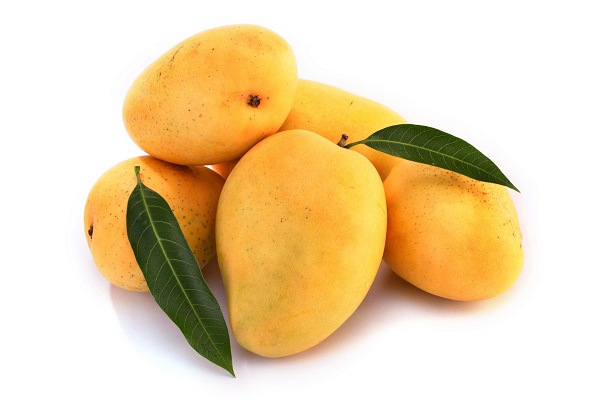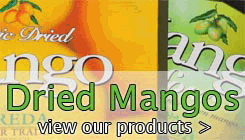The Fantastic Aeta Organic Fair Trade Mango
Father Shay Cullen
What depressed Susana, the chieftain of the Aeta indigenous people from Alibang community in Subic, Zambales was the bare-faced, shameless cheating and exploitation she and her whole village endured at the hands of the commercial mango traders in the nearby town. They only offered to pay four to five pesos a kilo for the Aeta pico mangoes and then the traders resold them in the market for 30 to 40 pesos. When the Aeta tried to set up their own retailing and trading stall in the public market, they were blocked or denied a permit for one reason or another or given a place so remote the customers could not find them.
The cheating used to happen every June, which is the harvest time for pico mango. The carabao mango harvest from February to May has passed and the demand for sweet pico mango was rising. It should be a time for prosperity and good earnings for the Aeta indigenous people but Susan and the village mango farmers were depressed and angry. They could not earn anything to buy rice by carrying sacks of mangoes from the mountains to the town and get only four pesos a kilo.
The traders formed a price-fixing cartel in the market to offer a low price so the Aeta farmers could not bargain between the different traders for a just and fair price. It is a dirty, capitalist trick. Besides, the Aeta are looked down upon by some of these lowlanders who consider them as somehow inferior and therefore exploitable. The Aeta are of original African descent with darker skin complexion than the Filipinos of Malayan decent.
But Susana and all the other Aeta are a gentle and proud intelligent people and the first inhabitants of the Philippine Islands. Several thousand years ago land bridges between the Asian mainland and the Philippines allowed the people to migrate from Africa. Then as one theory has it, global warming melted the ice caps and inundated low-lying parts of the Asian mainland. It is happening again these days as man-made carbon dioxide heats up the planet. As the land was submerged the original inhabitants were cut off from the rest of Asia. They maintained their unique and beautiful African features and DNA.
They were great survivors in the rain forests until after the American take-over of the Philippines in 1898. Then the rainforests began to be cut down until today only 3 percent remain and it is still going on. It is a massive and disastrous environmental catastrophe.
The Aeta and many of the native people like the Lumads and other indigenous tribal people have a long history of community-owned land and forest, which they claim as their ancestral lands. Their rights are recognized in Philippine law.
The Aeta survived with well-developed survival methods and techniques and remained incredibly healthy with their homegrown vegetable and fruits and a wide range of rainforest medicinal plants for treating most ailments and diseases. While the so-called educated elite of society are dying of cancers and diabetes, the indigenous people remain healthy. Who is the smarter and wiser? However, disastrous climate change is affecting them with severe drought and then massive storms.
The Aeta previously sold their surplus organic produce to the lowland communities but in modern Philippine society, the worst forms of liberal capitalism dominates the economic life of the people and the indigenous people are exploited, bringing shame on the whole Philippines.
Now, international mining companies and investors are aggressively destroying the lands all over again. The remaining forests are under attack and the ingenious people like the Lumads are being driven from their lands under the pretext of being declared rebels and subversives when in fact they are defending their ancestral lands from mining companies.
The multinationals can ride their bulldozers over the people’s ancestral lands with the backing of local corrupt politicians and family-owned Philippine mining companies and the military. All are conspiring and working against the indigenous people. So the cheating of Susana and her village farmers is nothing new, just another injustice and dirty trading practice of the exploitative monopoly present in the local and national marketplace. It became so bad that the Aeta people left the mangoes on the tree or ground as worthless. It was a terrible loss.
That’s where the Preda Fair Trade now helps most. The Preda Fair Trade project buys the mangoes of all sizes and shape and color without separation and segregation but by the kilo and pays a whopping 200 percent higher than the local traders. Now every piece of mango fruit is valuable and is enthusiastically harvested and brought to a collection point where a Preda vehicle picks it and delivers the mangoes to the processing plant three hours drive away.
The indigenous Aeta have reached the international organic standards of the European Union and have just been awarded organic certification for mangoes. This is one of the highest and most strict standards in the world. Their achievement is the first in the Philippines. No other community has achieved that standard and certification. Indeed it is a proud achievement and possible because of the non-chemical and natural practices of the Aeta in caring for their ancestral lands and agricultural practices. The training by the Preda organic team helped make it possible. Besides, other development projects were achieved also such as village water sources development and distribution of educational supplies.
There is no end to the demand for the Aeta organic mango puree in the European market place. Orders are increasing from the likes of Fair Trade Dritte Welt Partner (DWP) from Ravensburg, South Germany. DWP makes the superb Fair Trade organic products out of the mango puree and distributes them to the World Shops. The practice of Fair Trade and organic production is spreading in the Philippines as more Aeta communities join the Preda Fair Trade Aeta Farmers Association.
It is an important success story for Fair Trade as many more indigenous communities could be helped develop their natural resources and agricultural products and better their lives and that of the whole community.
preda.org
shaycullen@preda.org


